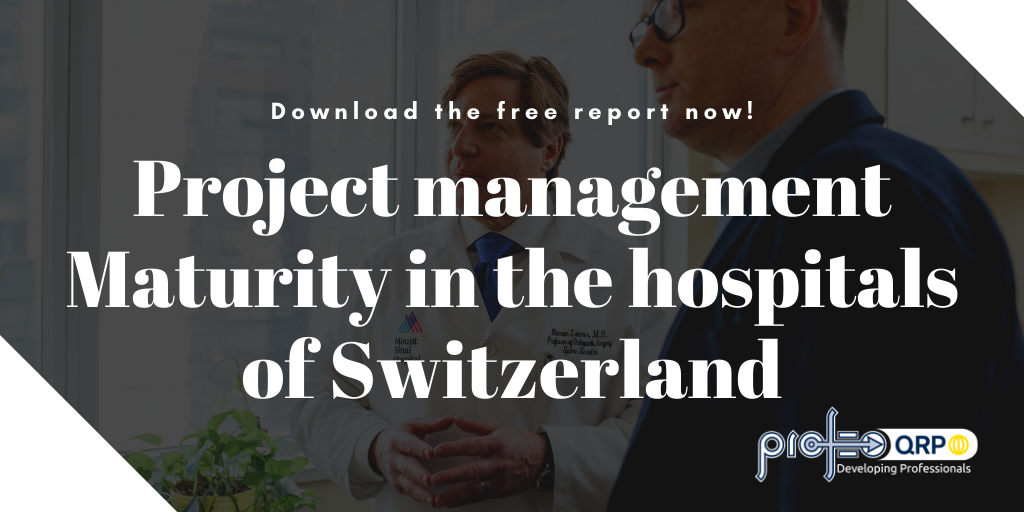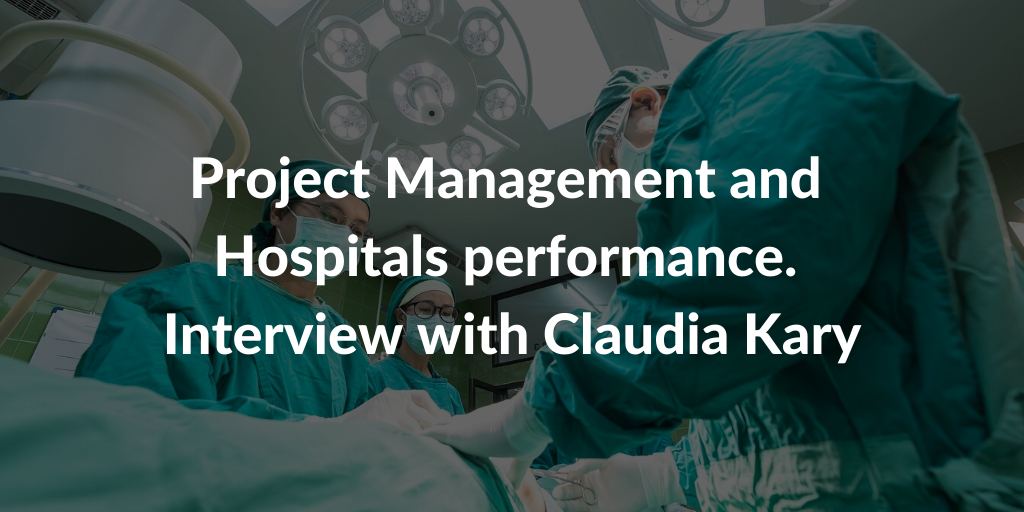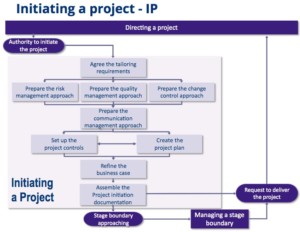News
View the latest inspiring and positive news and information about what's going on in the PM and IT world.

What’s a PID? PID's Definition in PRINCE2 context
Within a PRINCE2-context the PID (Project Initiation Documentation) is a logical set of documents that brings together the key information needed to start the project on a sound basis and that conveys the information to all involved with the project.
What is the purpose of the Project Initiation Documentation?
The purpose of the PID is to define the project, in order to form the basis for its management and an assessment of its overall success. The PID gives the direction and scope of the project and (along with the stage plan) form the “contract” between the project manager and the project board.
The three primary uses of the PID are to:
- ensure that the project has a sound basis before asking the project board to make any major commitment to the project
- act as a base document against which the project board and project manager can assess progress, issues and ongoing viability questions
- provide a single source of reference for the project so that people joining the “temporary organization” can easily and quickly find out what the project is about, and how it is being managed.
The PID is a living product in that it should always reflect the current status, plans and controls of the project. Its component products will need to be updated and re-baselined, to the extent necessary, at the end of each management stage, to reflect the current status of its constituent parts.
The version of the PID that was used to gain authorization for the project is preserved as the basis against which performance will later be assessed when closing the project.
PID Composition
The PID should include the following content:
- Project definition Explains what the project needs to achieve (background, project objectives and desired outcomes, project scope and exclusions, constraints and assumptions, the user(s) and any other known interested parties and interfaces).
- Project approach Define the choice of solution and delivery approach. Click here to download your customizable Project Approach Questionnaire (PAQ)!
- Business Case Describe the justification for the project based on estimated costs, risks and benefits.
- Project management team structure A chart showing who will be involved with the project.
- Role descriptions These describe the roles of those in the project management team and any other key resources
- Quality management approach Describes the quality techniques and standards to be applied and the responsibilities for achieving the required quality levels.
- Change control approach Describes how and by whom the project’s products will be controlled and protected.
- Risk management approach Describes the specific risk management techniques and standards to be applied and the responsibilities for achieving an effective risk management procedure.
- Communication management approach Defines the parties interested in the project and the means and frequency of communication between them and the project team.
- Project Plan Describes how and when the project’s objectives are to be achieved, by showing the major products, activities and resources required on the project. It provides a baseline against which one can monitor the project’s progress, management stage by management stage.
- Project controls Summarizes the project-level controls such as management stage boundaries, agreed tolerances, monitoring and reporting.
- Tailoring of PRINCE2 A summary of how PRINCE2 will be tailored for the project.
PID Chronological Order
Project Initiation Documentation Derivation
The PID includes the information available in the project brief. Indeed, the project brief describes the purpose, the cost, the deadlines, the performance requirements and the constraints of a project. It is developed before the start of the project during the Starting up a project process and used throughout the Initiating a project process to create the PID and its components.
It is then replaced by the PID and is not kept. A project brief includes the following:
- project definition,
- outline business case,
- project product description,
- project approach,
- project management team structure,
- role descriptions,
- references.
These essential elements of the project brief are therefore included in the PID and supplemented with new elements obtained after:
- Discussions with users regarding requirements,
- Discussions with suppliers for input on methods, standards and controls,
- Discussions with the business regarding value for money.
The Project Initiation Documentation consists of almost all the management documents from the Initiation Stage except the Benefits Management Approach as this comes to life after the project and is not archived with the other project documents.
PID Format and presentation
The PID could be:
- a single document
- an index for a collection of documents
- a collection of information sources in a project management tool.
QRP International regularly provides customizable templates to download for free in order to help you in the development of your management products.

Healthcare is one of the largest industries worldwide. Switzerland as a whole counts 281 hospitals (BFS, 2017) comprised of both public and private sectors. New challenges lead to an ever-higher number of initiatives needing to be implemented, which demand a high proficiency in project management.
To make a contribution to the healthcare sector becoming more efficient and competitive, we developed a survey based on various maturity assessment methods and on project management standards such as Hermes, PRINCE2, AgilePM, PMBoK, and the International Competence Baseline (by IPMA).
The report titled 'Swiss Hospital Project Management Maturity' is the final output of the Survey. It focuses on the hospital sector comprised of publicly state-owned infrastructures as well as privately held infrastructures within the French, Italian and German-speaking regions of Switzerland only.

Key Players
We collected 102 complete results from 46 hospitals with at least one hospital participating from 20 cantons; the exceptions being Appenzell Inner- and Ausserrhoden, Schaffhausen, Glarus, Zug & Schwyz. 240 hospitals of the officially 281 hospitals were invited to participate. The remaining 41 hospitals were too small, such as all birth-clinics and some specialised surgical, rehabilitation and psychiatric clinics.
Reasons for reading this research report
- A unique report on the Project Management Maturity in the hospital field.
- Information about the maturity of various aspects of Project Management in the hospital sector.
- Learn which PM methodologies are the most popular in the hospital sector.
Report segmentation
Analysis on the basis of:
- Size of hospitals - Large, Medium, Small.
- Private and Public.
- Function - Project and part project managers, Head of Project Management, PMO Manager, Quality Managers, Portfolio Managers, Further members of middle management.
- Language - German and French.
Table of Contents
- Background and introduction.
- The research approach.
- The results. a. Overall maturity. b. Maturity of organisational set-up. c. Roles and responsibilities. d. Maturity of the Project life cycle . e. Risk Management. f. Stakeholder Engagement. g. Benefits Management. h. Change and Issue Management.
- Summary & conclusions.
- Abbreviations and definitions.
Who
This initiative is a joint venture between the Business School of Lausanne (BSL) and ProfeoQRP (based in Chiasso) which is a consulting and training company with expertise in the hospital sector.
The master students of International Business executed the survey during their summer term from the end of May to the End of July 2019. After the term, the project was taken to completion by their professor and ProfeoQRP who was involved from the beginning as a sponsor of this initiative. The survey was kept running until the end of September, the report created between October and December, and the follow-up events carried out in January and February 2020.
Contact Info:
ProfeoQRP Address: Corso San Gottardo 46E – 6830 Chiasso, Schweiz Email: switzerland@qrpinternational.com
Download the free report now: Swiss Hospital Project Management Maturity

On-time delivery is the El Dorado of project management. No one wants to be late for a key deadline. As the deadline approaches, and you’re running late, the project manager and the project teamwork work like crazy to stay on time.
Everyone works late and comes in at weekends. This generates stress, overload, even burnout. There’s a better way to deliver on time. It’s called time-boxing. What is a time-box? A time-box has a fixed end date, which is fixed, but the work to be done is variable. If you are running late, you have a clear, pre-approved way of doing less. If you have less to do, you can probably get back on schedule. Before the time-box starts, you need to list the work to be done, and then get agreement on how to prioritize it. Here’s an example, for a simple project to tidy up and repaint a garage.Without a time-box, you might list the needs in any order, perhaps in order of work:
- Sort content of boxes
- Recycle junk
- Install new lighting
- Buy new tools
- Paint floor
- Paint walls & ceiling
- Paint woodwork
Without a time-box, if you run short of time, you may have to rush the last painting tasks. If you want to do a good job, you’ll be painting until midnight, and completely stressed out… By using a time-box, you can keep calm and avoid panic. You will focus on the essentials, and make sure that those essentials are delivered on time.
The trick is, before you start work, you should get the time-box agreed. You need to prioritise the list of needs.
Prioritised list
-- Must have --
- Paint walls & ceiling
- Paint woodwork
- Recycle junk
-- Should have --
- Paint floor
- Install new lighting
-- Could have --
- Sort content of boxes
- Buy new tools
If we are a bit late, we will drop one or more items from the “could have” list. If we are seriously behind schedule, all the “could have” items and one or more “should have” items won’t get done. We will plan our work accordingly, with the “must-have” items early in the schedule and the “could have” items later.
The first time you use time-boxing, you might hit the problem that people can’t or won’t prioritize their needs. Your boss might say that everything is a top priority. Nothing is negotiable. That’s normally not true, especially if on-time delivery is important. You may need to “educate” your boss. You may need to help people think through the real priorities.
If you are using a method like PRINCE2, you can add time-boxing to your work. In PRINCE2 terms, a stage or a work-package could be a time-box. You commit to deliver on time (zero tolerance on time), but you have a lot of flexibility on what you delivery, using your prioritised list of needs (so you have high tolerance on scope).
Another choice for methods is to move to an Agile method such as Agile ATERN(with AgilePM certification), which is built around time-boxes and prioritised lists. This method uses the acronym MuSCoW for Must Have, Should Have, Could Have, Won’t Have to help you remember to prioritize.
So if you are always rushing to hit your deadlines, you have a better way forward. You have a way to avoid last-minute stress and panic. If need to deliver on time, then it’s time to start using time-boxes.
Article republished from Milestones by Jeff Ball
Jeff Ball
 Jeff has 25 years of Project and Programme management experience. He has delivered end-to-end IT projects in challenging multi-cultural environments; As Programme and PMO Manager, Jeff has set up P3O structures at NEC Computers and Fortis Bank; and managed Programme offices for major enterprise transformation programmes at NEC Computers and BNP Investment Partners. He is a multilingual trainer for PRINCE2, MSP, P3O, MoP and AGILE Project Management, able to perform courses in English, and French.
Jeff has 25 years of Project and Programme management experience. He has delivered end-to-end IT projects in challenging multi-cultural environments; As Programme and PMO Manager, Jeff has set up P3O structures at NEC Computers and Fortis Bank; and managed Programme offices for major enterprise transformation programmes at NEC Computers and BNP Investment Partners. He is a multilingual trainer for PRINCE2, MSP, P3O, MoP and AGILE Project Management, able to perform courses in English, and French.

When in 2001 Claudia set up her training, consulting and assessment company for project, program and project portfolio management she had a vision of making an impact on improving project success. She had seen too many projects fail, organisation wasting money and resources, and the aspired benefits not being achieved.
Who is Claudia and why did she do it? Read her responses to our interview below.
What's your current job title? What do you actually do?
I currently have 3 jobs. I am the Owner and CEO of Profeo Ltd. – the consulting company I founded in 2001 which specialises in supporting organisations in the implementation of project, programme and portfolio management standards and the set-up of PMO.
As a consulting company, my employees and I worked with many organisations establishing best practices in project, program and portfolio management.
QRP International and the training sector of Profeo merged in 2017 and I am now also a Managing Partner at QRP International acting as the Business Development Manager for QRP’s training portfolio in Switzerland.
In 2010 the Business School of Lausanne (BSL) asked me if I wanted to take over the Project Management training for the MBA and EMBA students. I ended up becoming an associate professor at the Business School of Lausanne where I teach the subjects I have been involved with since the beginning of the 90ies to the master students of International Business.
Being an associate professor at BSL forces me to stay up to date with all the newest trends in those fields in order to assure that what my students learn remains relevant and reflects the current practices. I need to keep informed on the new trends in organisational management and other issues organisations are facing in this millennium.
In my courses, I do not just lecture but make my students execute programs and projects and in 2019 I made them launch a program and execute three initial projects for the hospital sector, amongst which there was a project to execute a survey and identify the Project Management Maturity in the hospitals of Switzerland.
Why the hospital sector?
We won a tender with the Insel Spital in Berne in 2006 and I was fascinated by the challenges the hospitals are facing and therefore decided that I needed and wanted to learn more about that sector.
My first client was instrumental in “teaching” me and I have attended workshops, conferences and lectures further extending my knowledge about this sector ever since.
By and by, we developed an expertise in the sector and gained more customers where we performed assessments, delivered consulting and trained employees in different departments.
I think it is one of the most challenged industries and I believe one which can profit from professional portfolio AND project management the most, BUT a cultural change will be required.
What makes projects in the hospital environment exceptional?
I cannot easily sum this up. It is definitely one of the most challenging industry: rapid changes of trends, exploding costs, new technologies, big data, more “customers”, changing “customer” behaviour, outdated legacy systems, not enough staff; I could go on.
To counter these challenges, a sheer enormous number of projects need to be executed. Many projects are completely novel; the technologies are new, the outcome will change established work practices etc. Hence, many projects are highly complex and risky,
Profeo Ltd., 04.01.2020, Project_PM Healthcare Summit_Interview Questions_E_V001.docx 2/2 AND expertise is difficult to come by. Too much needs to be done in a short time, and like all industries – or even more so the hospital sector – resources are short.
How can Project Management best practice standards improve performance in hospitals?
The staff have enough challenges figuring out how to implement completely novel technologies and approaches. One thing that could – however – be simplified is how to manage the projects. So, if they had a standard and tools in place this would mean that there would be one worry less.
What's your advice on how to deal with these challenges?
Project Management cannot be looked at in isolation. Without a clear strategy supported by a structured, supported and agile Portfolio Management, the best and most comprehensive Project Management Standard will not achieve its objective of preparing the hospitals for the challenges to come.
Also, as I said before, many of the projects to be implemented will require an organisational change. Therefore the topic of Change Management needs more attention and proven practices need to be executed (maybe through MSP) in order to ensure changes are lasting and stakeholder resistance can be overcome.
Hospitals should analyse their greatest weaknesses and improve step by step. The survey my students executed and its results will hopefully help them to establish a road map.
 Since 1984, Claudia Kary has managed and supervised various projects of varying complexity for companies in various industries around the world.
In 2001, she founded the globally active company Profeo Ltd, based in Zurich. They set up the mechanisms within an organization and ensure that the entire organization has the necessary capability to align projects with the corporate strategy.
Claudia Kary on Linkedin
Since 1984, Claudia Kary has managed and supervised various projects of varying complexity for companies in various industries around the world.
In 2001, she founded the globally active company Profeo Ltd, based in Zurich. They set up the mechanisms within an organization and ensure that the entire organization has the necessary capability to align projects with the corporate strategy.
Claudia Kary on Linkedin
QRP International Switzerland launched its site at the beginning of 2019 and it has already collected thousands of views. A big thank you for your loyalty throughout this past year.
Would you like to know the 10 topics most visualized in 2019 on our 'News' Section? Here are the top posts of this year. The opportunity for you, we hope, is to (re)discover some of them:
- Scrum Master vs Project Manager
- Challenges and Opportunities in PMO. Interview with Tom Van Medegael
- What is a Project Manager?
- ITIL 4 Foundation Exam
- The Project Manager role in PRINCE2
- Challenges and opportunities in IT Program Management. Interview with Younes Idrissi Kaitouni
- Challenges and Opportunities in Agile Change Management. Interview with Melanie Franklin
- Challenges and Opportunities in Project Management. Interview with Dong R. Jeong
- What is Service Manager? The role and responsibilities
- What is a Scrum Master: the role and responsibilities
The new year is already approaching and we will continue to offer you more and more relevant articles to best meet your expectations.
If you have any questions that you would like us to answer, topics that are of particular interest to you, or if you would like to collaborate with us in writing blog posts, please contact us at switzerland@qrpinternational.com.
We would like to take this opportunity to inform you that each new post is announced on our QRP International Belgium Linkedin page. You can also subscribe to our monthly newsletter if you prefer.
We wish you all a very Happy New Year 2020!

For the majority of enterprises, managing change is the hardest challenge ever and in a fast-paced ever-changing environment, the challenge is getting bigger and bigger.
Organizations are dealing with change in different ways: some of them own a well-defined strategy to proactively deal with change whereas, some others haven’t a strategic vision and they respond to the continual change (competition, development, innovation) in a reactive manner.
The scope of a program is the coordination of all the activities involved in a change initiative accordingly to the company strategy. A successful program enhances change through managing, controlling and coordinating the enactment of a series of projects which share the same objectives in terms of results and benefits.
Change is obtained mainly through projects but Programme Management and Project Management are well distinguished. Actually, a program can include projects enacted in different business areas, it can be a standalone program or it can be part of a portfolio so, thinking about a program as a huge project is misleading.
Here two fundamental characteristics of a program:
- it has to fulfil one or more strategic objectives,
- its focus is on Changement when Changement realizes, the program is to be considered closed.
The difference between a project and a program is not in the length: the key concept is that a project is focused on delivering a specific output while a programme may deliver ongoing outcomes and business benefits.
So, what is Program Management?
In Axelos’ words Programme Management “exists to coordinate, direct and oversee implementation of a set of interrelated projects". Both in Project and Programme Management the planning of the workload and tasks is essential but in Programme Management planning is tied up with the business strategy more than being dependant to specific results (deliverables) as happens in Project Management.
Moreover, Programme Management implicates also departments of the organization linked to Changement in order to enable Changement correctly inside the business areas involved. When change ends, the involved business areas will find themselves in a situation with a changed business as usual which is expected to generate benefits in contrast to previous BAU.
Programme Management: why is it important?
The majority of modern and structured organizations use project management methodologies but project management alone isn’t always sufficient. Program Management is necessary to do deal with complex and broaden requests for change in fact when facing great changes, risk and complexity increase.
An organization can manage several projects at a time. In the eventuality of a complex change, there could be several projects for a long period of time and it gets harder and harder to manage them by utilizing just Project Management tools.
Moreover, projects usually have a short length and the project team starts working on a new project once the final output is delivered. As a consequence, project teams did not always look after the benefits realization or that the output is delivered correctly to operation teams. The inner nature of the project is focussing on the results and not on medium-long term benefits.
The pivotal importance of programme management is on the maintenance of visibility and control on several projects.
Thanks to Programme Management together with project management, the organization can count on a set of skills capable of ensuring a concrete return on investment of their change initiatives.
The role of the Programme Management and, of course, of the Programme Manager is pivotal for the modern organization which have to be well aware of the risks and impact that big projects can have on their business.









